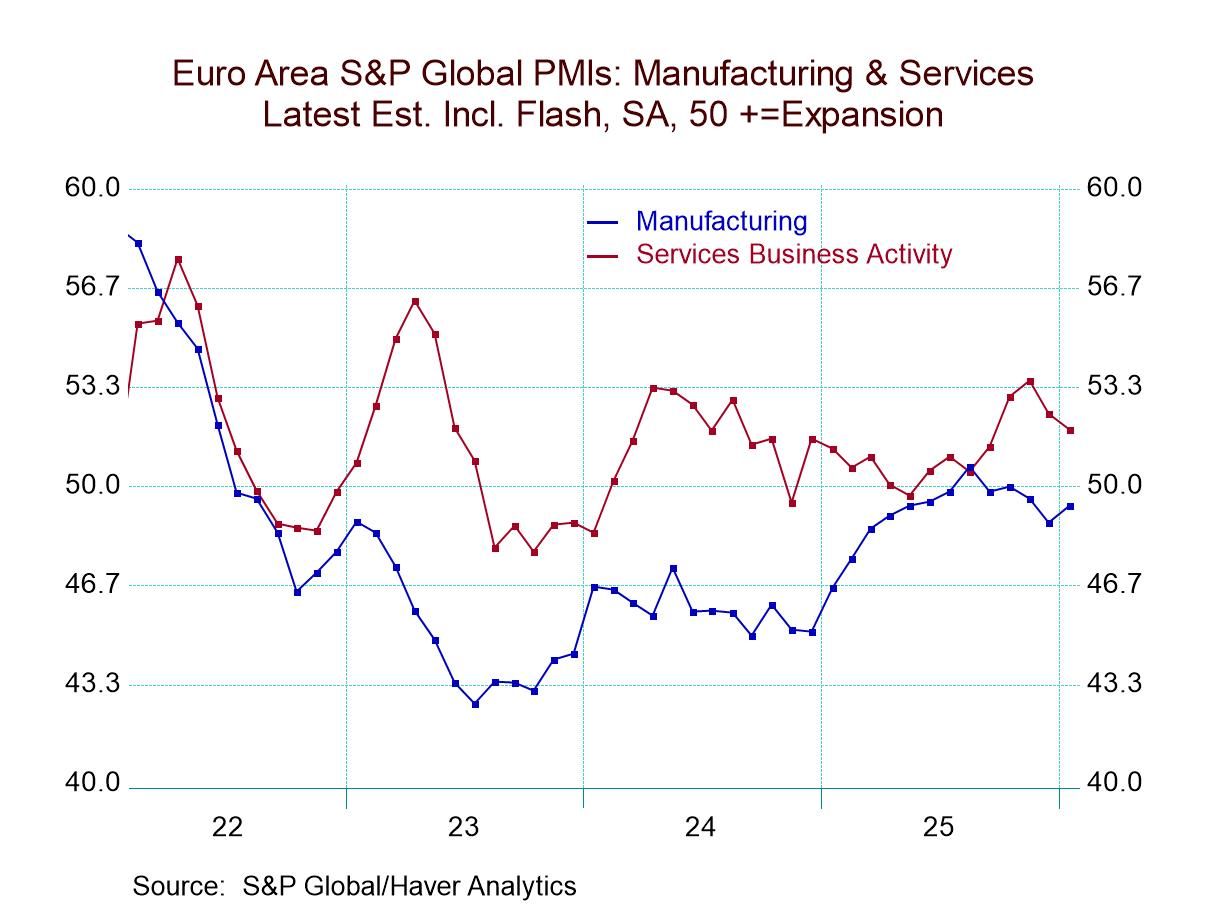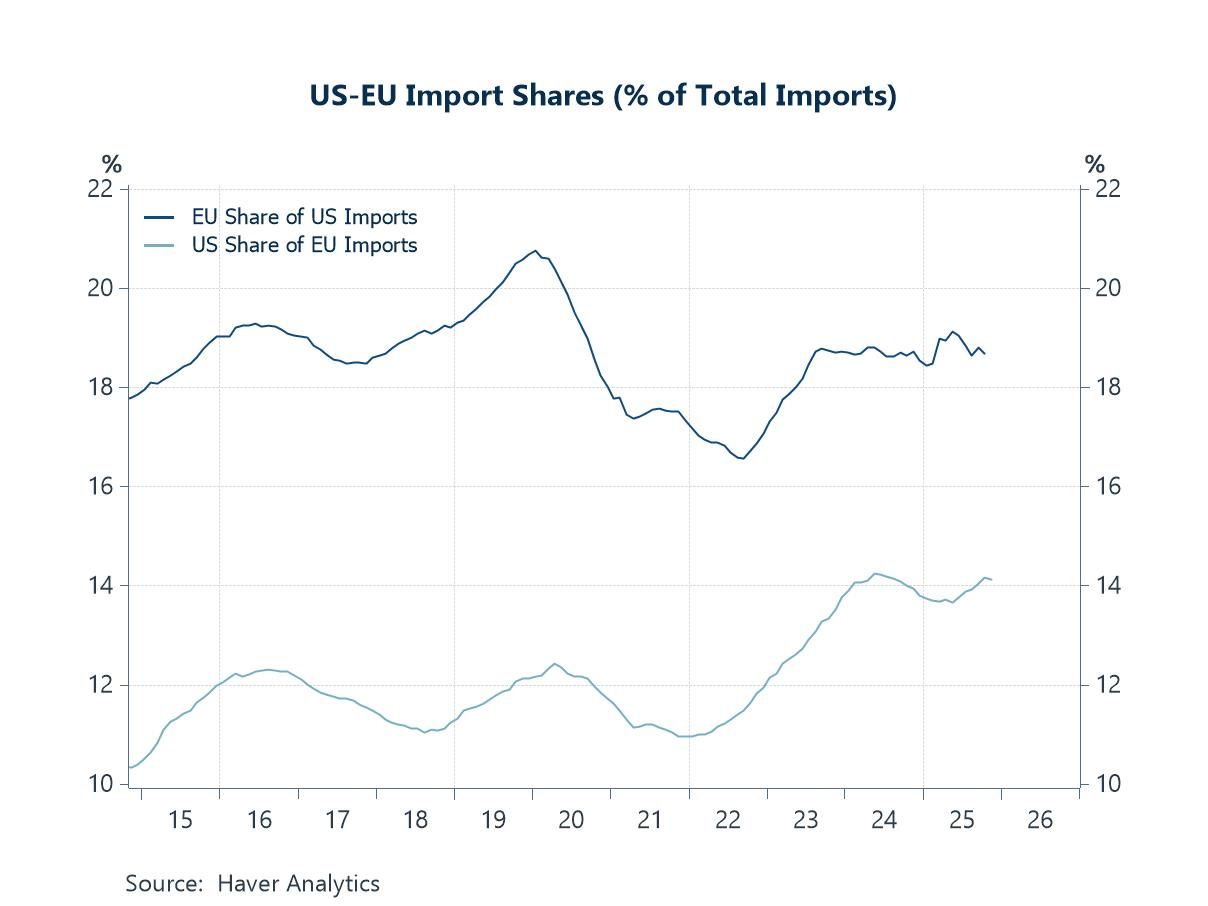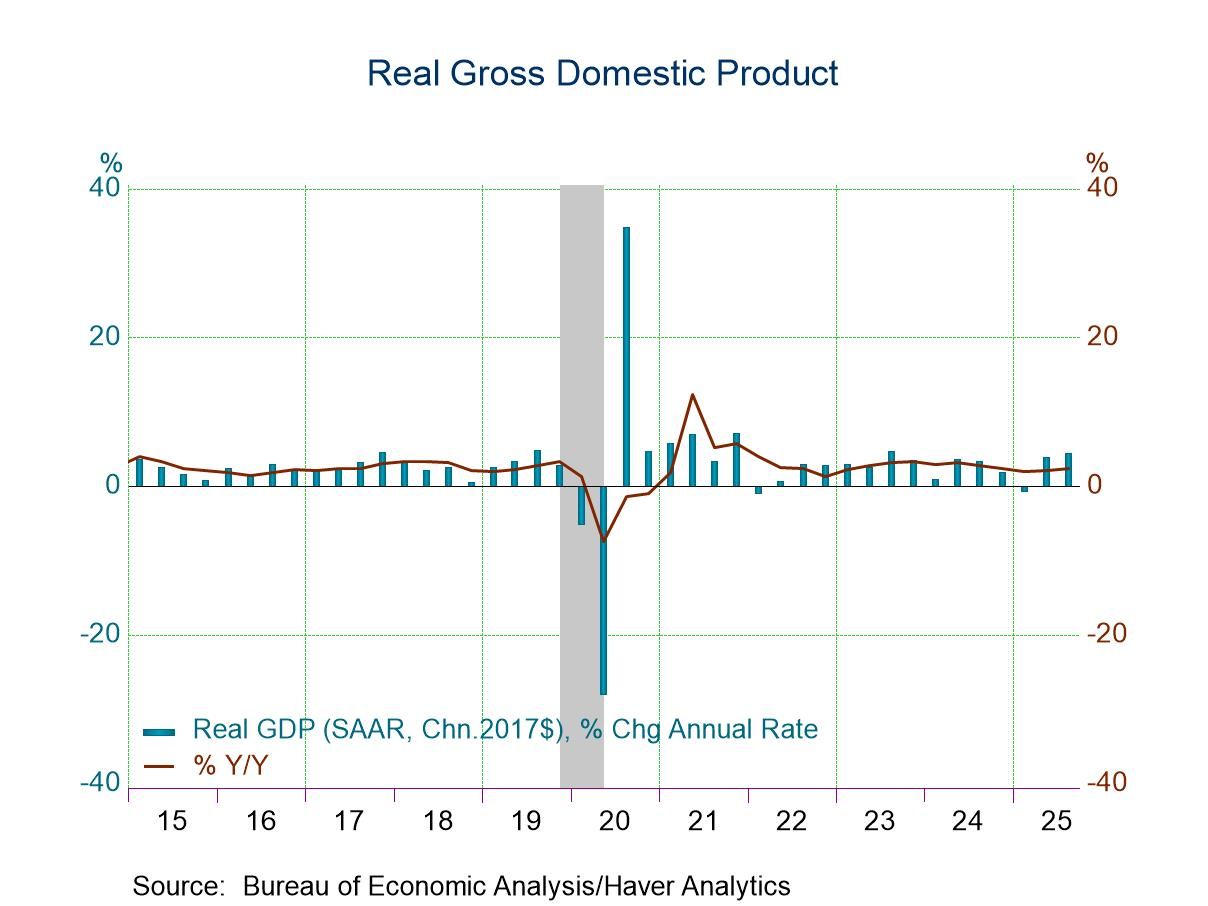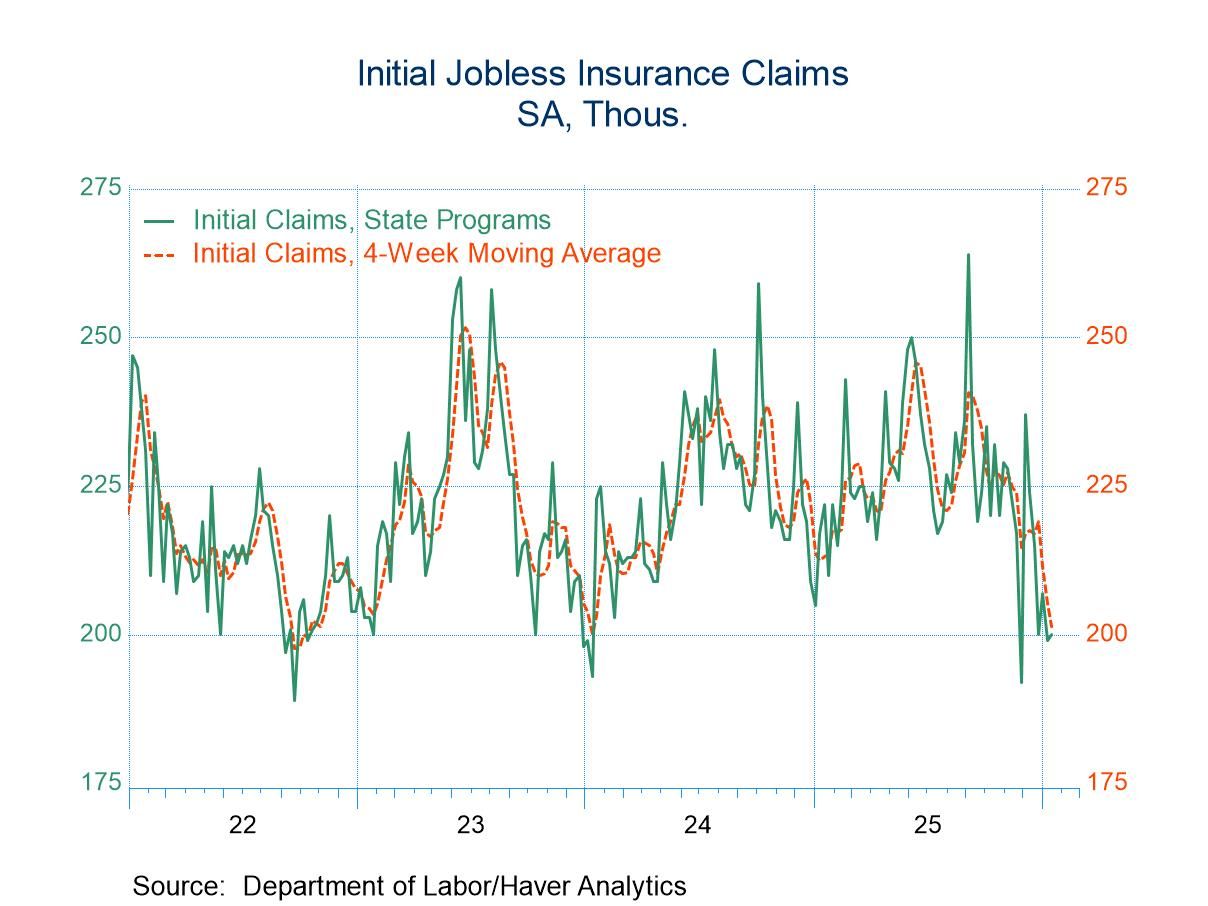 Global| Mar 30 2004
Global| Mar 30 2004Chain Store Sales Flop
by:Tom Moeller
|in:Economy in Brief
Summary
Chain store sales dropped 1.9% last week according to the International Council of Shopping Centers (ICSC)-UBS survey.The decline reversed all of the weekly gains during the prior two months. The latest decline left sales so far in [...]
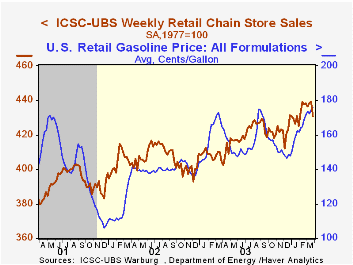
Chain store sales dropped 1.9% last week according to the International Council of Shopping Centers (ICSC)-UBS survey.The decline reversed all of the weekly gains during the prior two months.
The latest decline left sales so far in March 0.1% below the February average.
The ICSC-UBS retail chain-store sales index is constructed using the same-store sales reported by 78 stores of seven retailers: Dayton Hudson, Federated, Kmart, May, J.C. Penney, Sears and Wal-Mart.
During the last ten years there has been a 51% correlation between the year-to-year percent change in the ICSC-UBS measure of chain store sales and consumer sentiment.
| ICSC-UBS (SA, 1977=100) | 03/27/04 | 03/20/04 | Y/Y | 2003 | 2002 | 2001 |
|---|---|---|---|---|---|---|
| Total Weekly Retail Chain Store Sales | 431.0 | 439.5 | 6.6% | 2.9% | 3.6% | 2.1% |
by Tom Moeller March 30, 2004
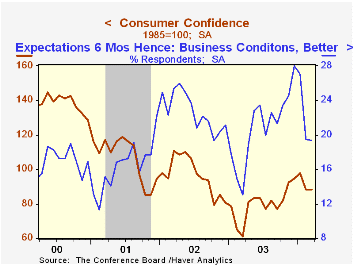
The Conference Board’s Index of Consumer Confidence for March slipped 0.2% to 88.3 versus February's level, revised up slightly to 88.5 from 87.3 .
In contrast, the March reading of Consumer Sentiment from the University of Michigan rose 1.5% from February. The drop in Confidence was more moderate than Consensus expectations for a decline to 86.0.
During the last ten years there has been a 67% correlation between the level of consumer confidence and the y/y % change in real PCE.
The present situation reading rose 1.0% to 84.1 (+37.0% y/y) and prior month's levels were revised up sharply. The index of consumer expectations fell by 1.0% (+48.2% y/y), the third consecutive monthly decline, and prior month's levels were revised down.
Jobs were viewed as hard to get by 30.0% of respondents, an increase from prior month's levels which were revised down. The low for this series was in 2000 when 11.2% of respondents viewed jobs as hard to get.
Expectations for business conditions in six months held steady in March but only 19.3% of respondents expected conditions to improve, the lowest since last April.
The Conference Board’s survey isconducted by a mailed questionnaire to 5,000 households and about 3,500 typically respond.
| Conference Board | Mar | Feb | Y/Y | 2003 | 2002 | 2001 |
|---|---|---|---|---|---|---|
| Consumer Confidence | 88.3 | 88.5 | 43.8% | 79.8 | 96.6 | 106.6 |
Tom Moeller
AuthorMore in Author Profile »Prior to joining Haver Analytics in 2000, Mr. Moeller worked as the Economist at Chancellor Capital Management from 1985 to 1999. There, he developed comprehensive economic forecasts and interpreted economic data for equity and fixed income portfolio managers. Also at Chancellor, Mr. Moeller worked as an equity analyst and was responsible for researching and rating companies in the economically sensitive automobile and housing industries for investment in Chancellor’s equity portfolio. Prior to joining Chancellor, Mr. Moeller was an Economist at Citibank from 1979 to 1984. He also analyzed pricing behavior in the metals industry for the Council on Wage and Price Stability in Washington, D.C. In 1999, Mr. Moeller received the award for most accurate forecast from the Forecasters' Club of New York. From 1990 to 1992 he was President of the New York Association for Business Economists. Mr. Moeller earned an M.B.A. in Finance from Fordham University, where he graduated in 1987. He holds a Bachelor of Arts in Economics from George Washington University.



